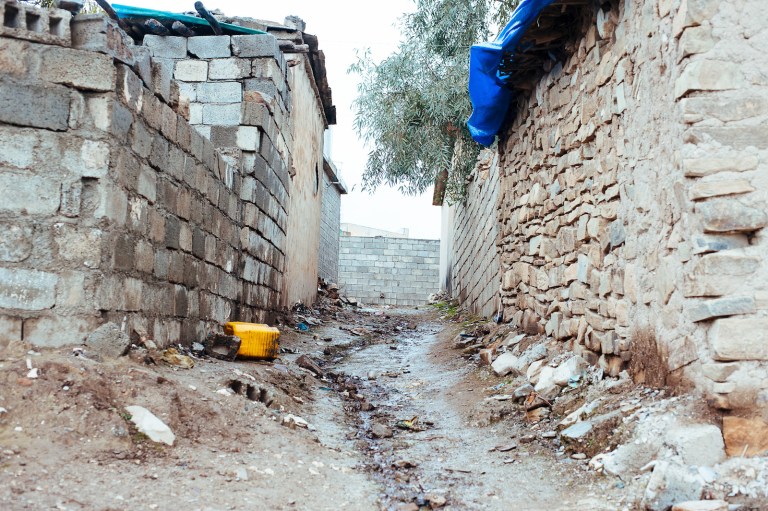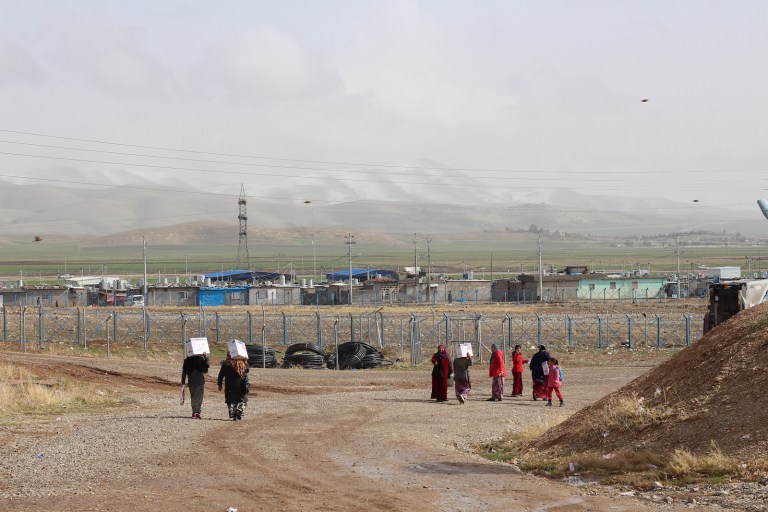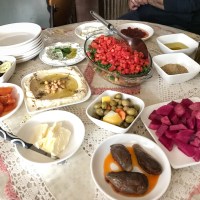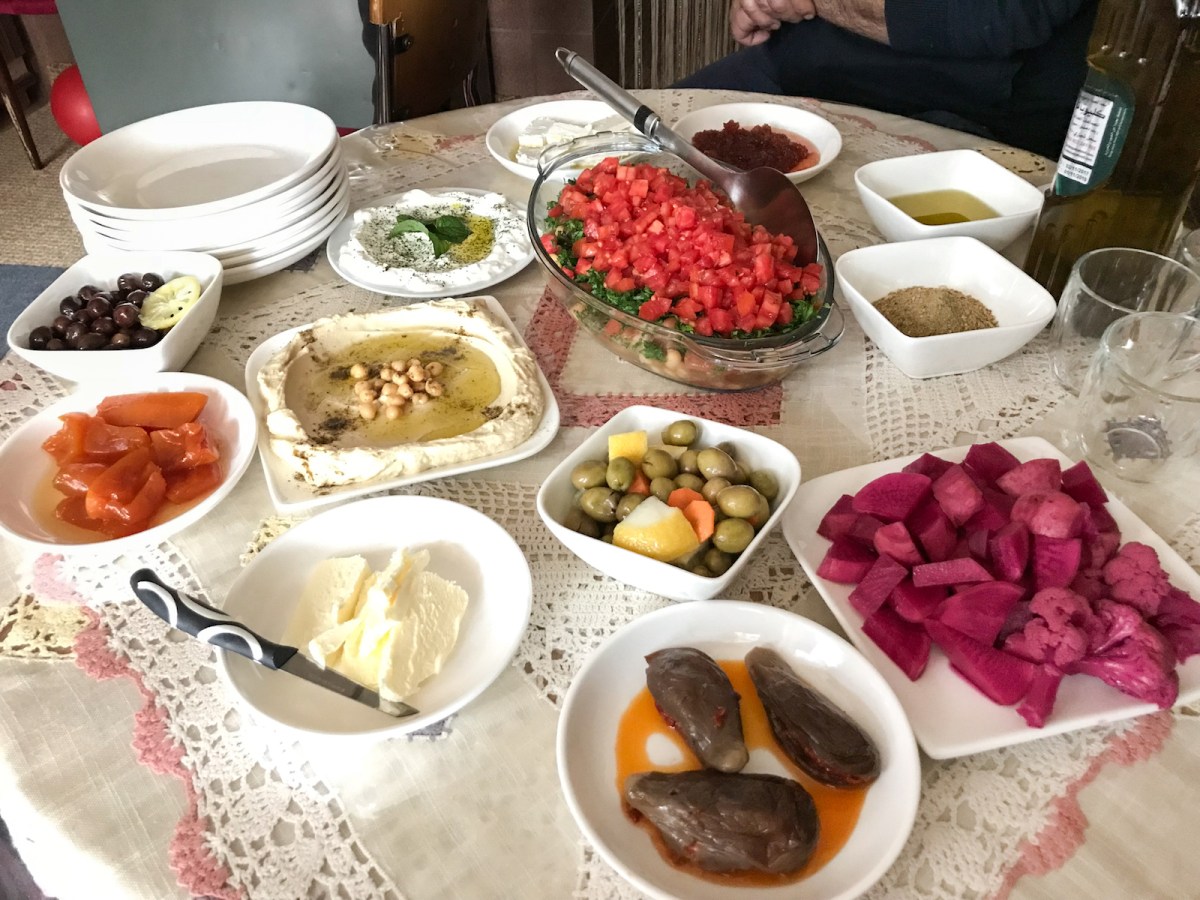The table was set for a feast, all the foods of a traditional Syrian breakfast. Two kinds of cheese, yogurt with mint, olives, homemade pickles, pumpkin and quince jams, tiny eggplants stuffed with nuts, and at the center of the table, baked chickpeas, fava beans and garlic, topped with fresh tomato and parsley.
It was delicious! It was also unlike anything I’ve experienced before in a refugee camp.
Our work in this camp started with the poorest, most vulnerable families. Many of those families are from traditional villages in Syria, and they have recreated their old life as best they can in their new homes in the camp. Every family has been generous, but most have little means.
This particular family came to Iraq from an urban part of Syria. The father, a carpenter, has invested himself in this house. He built it “by his own hands,” with the help of his sons. (Yes, refugees in officially sanctioned refugee camps often have to build their own shelters.) The only thing this family needed to pay someone else to do was building the roof. Everything else–every concrete block laid and tile set—the family did themselves over the last three years in the camp.

They are not allowed to sell their home inside the camp—that is against the rules. They built it not as an investment for the future, but for the wellbeing of their family now.
Until a few months ago, when the struggling local economy dipped lower again, their oldest son was always able to work outside the camp to support the family. They had to be extremely careful about money, but there was always food on the table.
After our meal, more generous than their usual daily fare for their guest, we spent some time visiting. It didn’t take long for the pain of their refugee life to come spilling out. 
They may not be the poorest family here—and having some resources does help relieve some of the stress that comes with being a refugee, no question. But it doesn’t make you immune to the prejudice, unfairness, and hardship that is so often part of the refugee experience.
Every part of life outside their home reminds them that they are outsiders. Beyond the camp’s perimeter fence, taxi drivers and checkpoint guards question why they don’t have a flawless command of the local language. Employers in the nearest city pay them a fraction of standard minimum wage, because there are so many unemployed or underemployed people competing for every open position.
Then there are the usual indignities that come with life inside a refugee camp. Few camp residents can figure out the system of getting on the “right list” at the “right time” to receive services. In the camp schools, most teachers work hard enough to pass the students on to the next grade, but no one is seeing and supporting greatness in their students.

Security measures are strict, because of the fear that comes with having a large, outside population unconnected to local residents. Permissions must be sought for nearly everything. I can only visit this family—sit at their kitchen table and scoop up hummus with a torn piece of flatbread, surrounded by three generations—because I have a large NGO logo on the dashboard of my car.
Over breakfast I learned that fava beans are better with garlic, eggplant is better stuffed with nuts—and while war can strip away everything you ever owned, it cannot take your dignity, minimize your generosity, or put boundaries on friendship, unless you allow it to.


